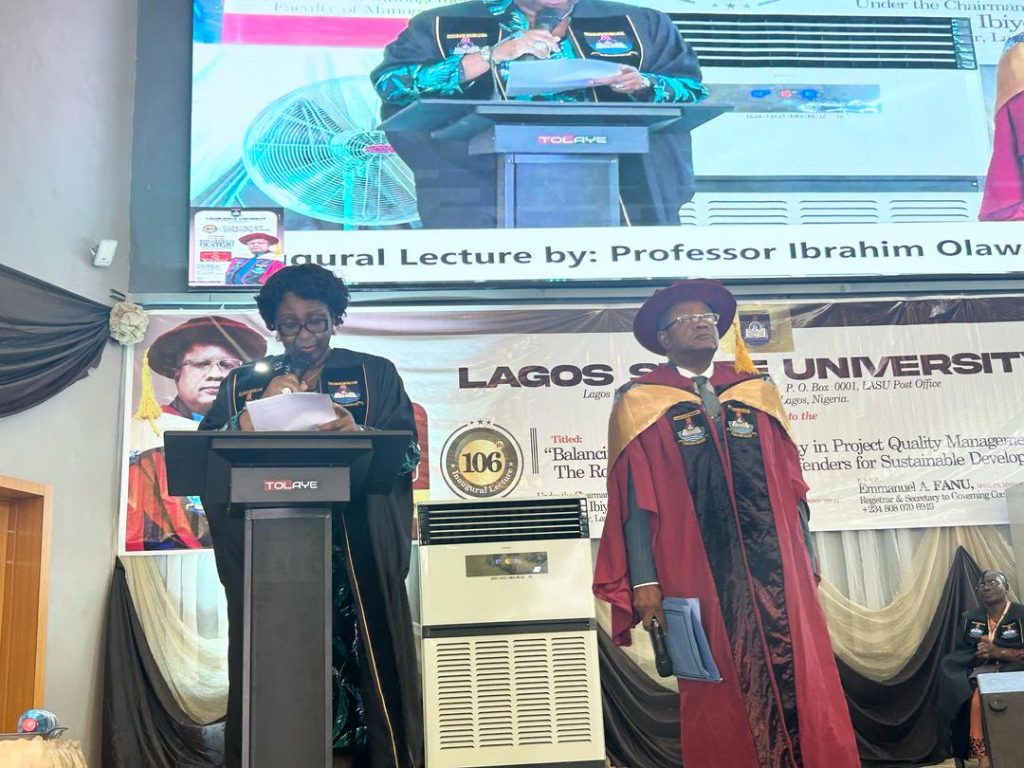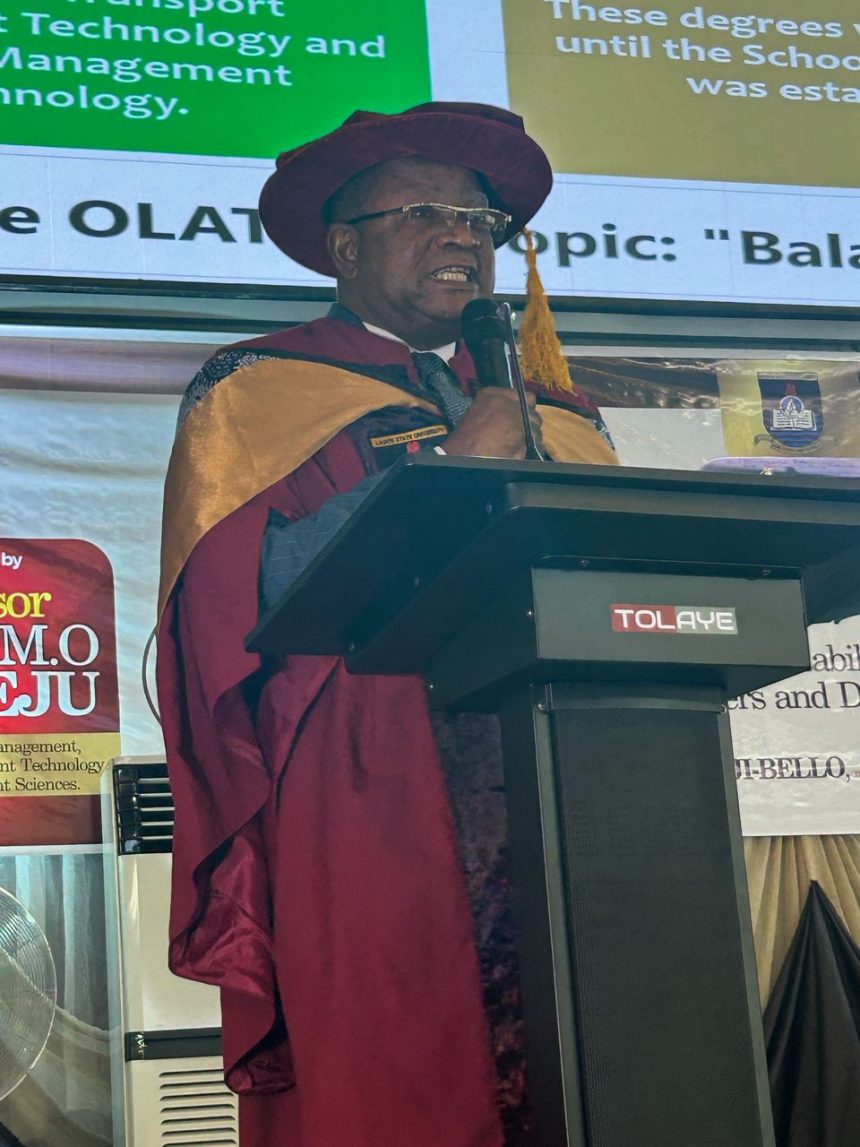…..Calls For New Appraisal For University Students
An expert in Project Management, Lagos State University (LASU), Ojo, Prof. Ibrahim Olateju has said that a company’s market position can be significantly strengthened by consistently delivering high-quality products and services.
This, he said, will differentiate the company from its competitors, leading to a stronger market position and potentially higher margins.
According to him, the consistent delivery of high-quality products helps build a reputation for reliability and excellence, which is crucial for long term success.
Prof. Olateju stated this on Tuesday while delivering the university’s 106th inaugural lecture entitled: ‘Balancing Innovation and Stability in Project Quality Management: The Roles of Challengers and Defenders for Sustainable Development’.

The inaugural lecturer also pointed out the need for organisations to allocate a budget for high quality materials, advanced technologies and rigorous quality control processes when planning for projects.
He added that though these investments can be expensive at the onset, they often lead to substantial long term benefits.
Prof Olateju listed the initial cost to include expenses related to research and development, employee training and adopting new systems or standard.
He explained further that during execution phase of the project, maintaining high quality standards helps minimize defects, rework, and waste.

“By implementing quality management practices and continuously monitoring progress, project managers can avoid costly errors and inefficiencies because high-quality outcomes not only reduce the incidence of customer dissatisfaction, complaints, and returns but also enhance the overall reputation and profitability of the organization.
He however added that in addition to these project management considerations, integrating quality management with Sustainable Development Goals (SDGs) is essential.
“Aligning quality management strategies with SDGs, such as fostering a culture of innovation (SDG 9), and implementing sustainable practices (SDG 12), can drive both quality and sustainability.”
This balanced approach, according to him, contributes to both economic and environmental goals while maintaining high standards.

He said: “Viewing quality as a strategic asset that drives sustainable growth and development helps align business practices with global goals, contributing to the achievement of SDGs and ensuring long term success.”
Likening it to how it can help institutions of learning enhance the quality and accreditation of programmes, Olateju said there is the need to incorporate virtual space, continuous quality appraisal, discourage one-off examination, develop examination banks, and revising the appraisal ratio of 70:30.
“The current 30/70 ratio should be reversed to 70:30 in favour of continuous appraisal. This shift will provide a more accurate reflection of students’ abilities and consistent performance over time.

“Also each university should establish an examination bank to serve as a repository for examination questions. This resource will support the standardization and improvement of assessment practices across institutions,” he explained.
Prof. Olateju also advised the practice of using a specified calendar for one-off examinations as the primary method of student appraisals and also quality appraisals should be conducted continuously throughout the training period for all disciplines.
He added that the recommendations aim to foster a more dynamic and accurate assessment system, ultimately enhancing the quality of education and better preparing students for future challenges.
BV.












